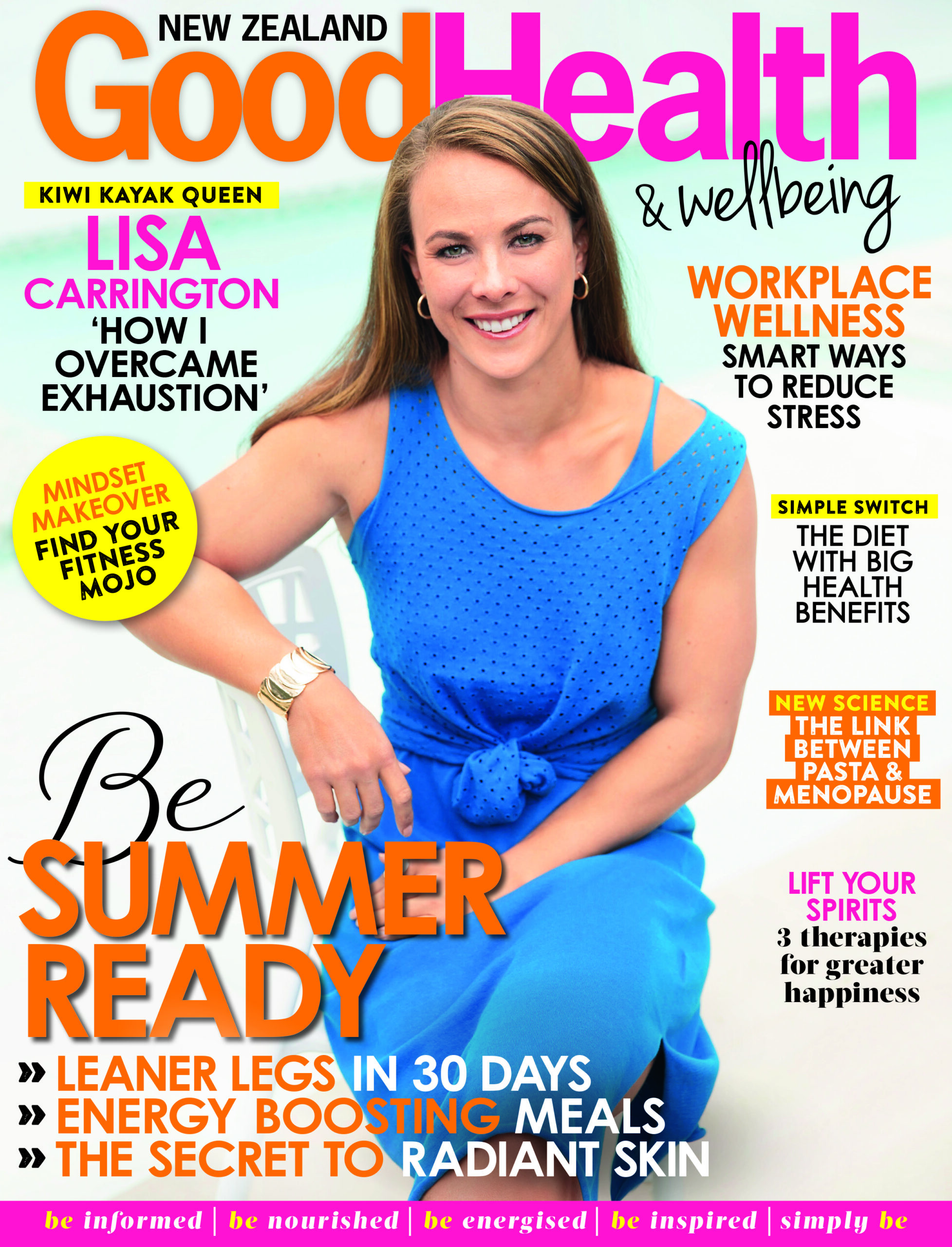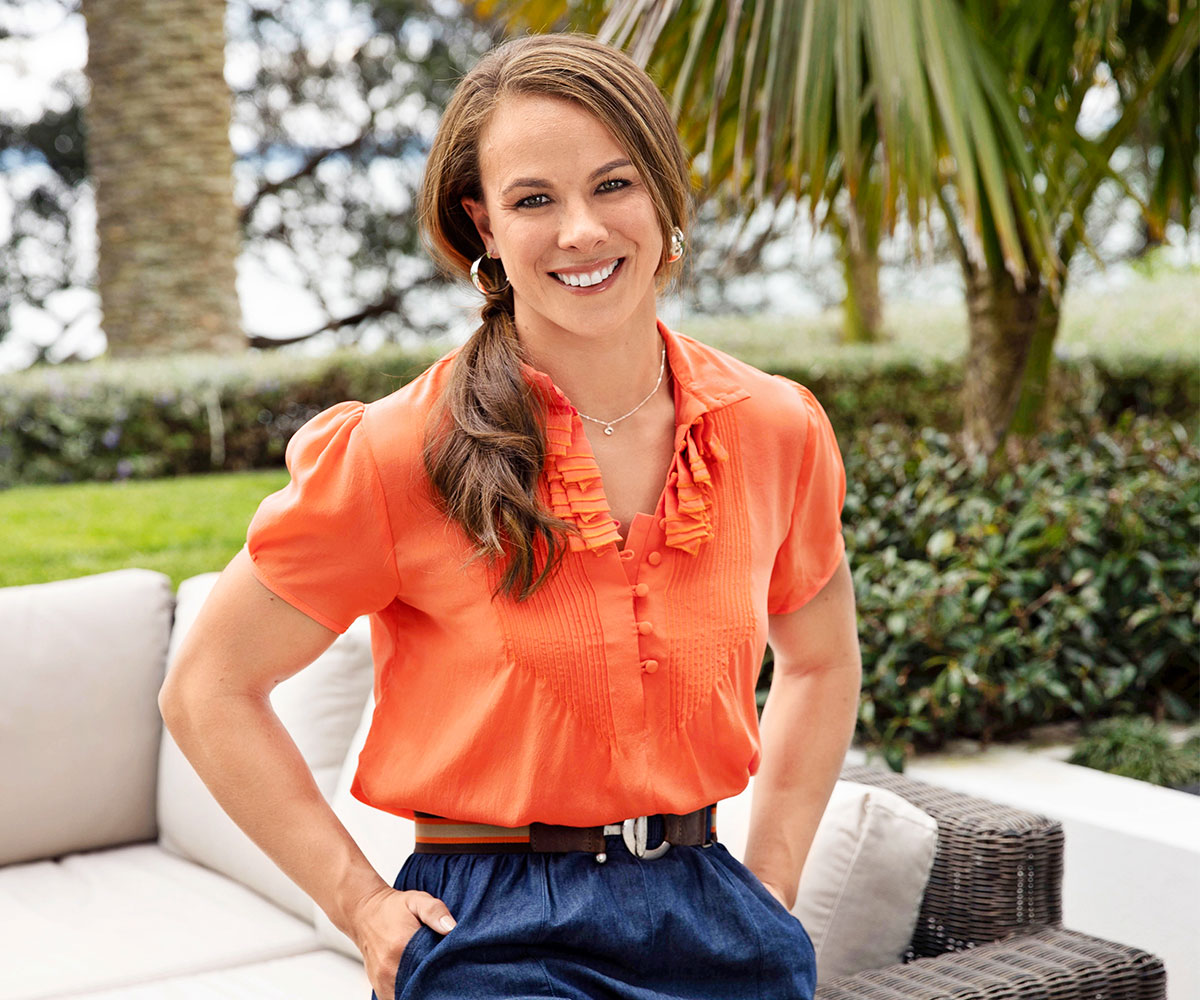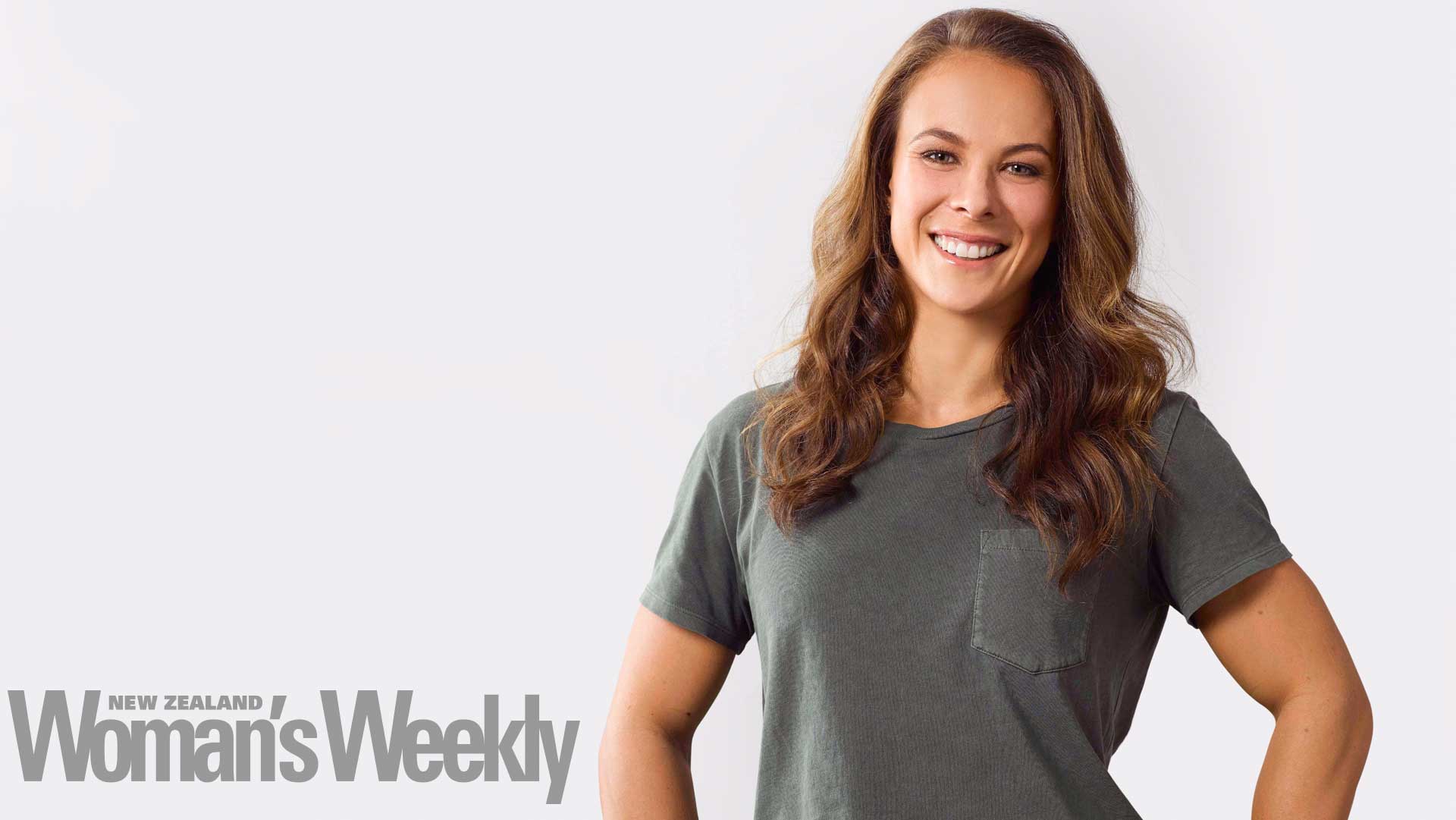At 6 o’clock every morning, Kiwi sprint canoe champion Lisa Carrington is wide awake and ready to head off to a training session on Auckland’s Lake Pupuke.
For the gold medallist, life right now is dedicated to one simple goal – making that kayak go faster. At the recent world championships in Portugal, she powered her way to three silvers and a gold, and now her sights are firmly set on the Tokyo Olympics in 2020 where she’s aiming to add to her gold medal haul.
How intensely Lisa trains depends on where she’s at with her competition schedule, and alongside the early morning training session, she’s back on the lake in the afternoon and also hits the gym three times a week.
“I do lots of strength work,” she says. “Pretty much all my cardio is done on the water, although we do mix in a little cycling or running to give my body a rest from it. And then I’ll also fit in some Pilates – a one-on-one session with some really challenging core and stability exercises.”
But the exercise itself is only part of the story – keeping her body carefully fuelled with the right nutrition is almost a job in itself.
“The effort that goes into preparing meals and eating right is probably the hardest part,” she says.
“It takes so much time and energy. So it’s really good to have options where you can go and easily pick up something you know is going to be nutritious.”
While she has to give more thought than most of us to what she puts on her plate, sweet treats are definitely still on the menu. “I don’t deprive myself of things I want. Chocolate, ice cream… I’m a huge fan of caramel popcorn.”
She’s focused, determined, and when she’s out on the water she makes it all look easy. But for the athlete, overcoming fatigue has been a major challenge in the past.
“High-performance training was really difficult for me in the early days,” recalls Lisa, who admits she spent quite a bit of her early twenties feeling exhausted.
“I would need to nap for an hour or two. As I’ve got older I don’t have to do that as much, but if I’m incredibly tired and need to be able to perform or go to an event, I can shut my eyes for 15 minutes and have a power nap. I’m pretty good at those.”
To find out more about how Lisa copes with fatigue, and her future plans, check out the latest issue of Good Health and Wellbeing.



